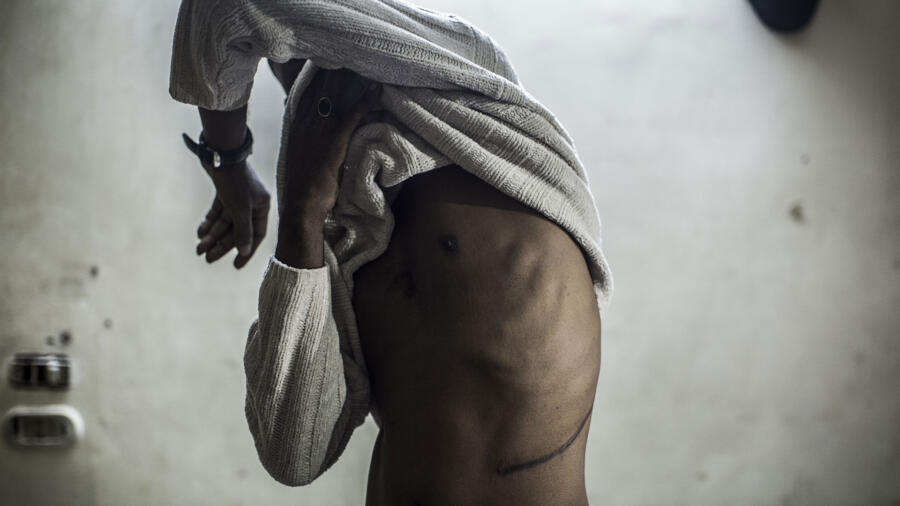Where Survival Has a Price Tag
It doesn’t happen in back alleys. It happens in operating rooms.
Not with masked criminals — but licensed surgeons.
And the victims? Often desperate, voiceless, and invisible.
Welcome to the world of organ trafficking, where the poor sell pieces of themselves, and the rich buy time — all while an untraceable black market swells in silence.
This is not fiction. This is happening — right now, around the world.
The American Wake-Up Call: Rosenbaum’s Organ Empire
In 2011, the U.S. uncovered its first case of black-market organ trafficking.
Levy Izhak Rosenbaum, a man from Brooklyn, posed as a “matchmaker.” But he wasn’t connecting people with love — he was brokering human kidneys.
- Bought from desperate individuals overseas for $10,000
- Sold to American patients for $120,000+
- Surgeries performed in real hospitals like Philadelphia’s Albert Einstein Medical Center
He called it a mitzvah. Prosecutors called it exploitation. He served only 2.5 years.
But this case didn’t reveal the whole monster — just a single claw.
A Market Thriving in Plain Sight
Organ trafficking is real. Rampant. And global.
According to the World Health Organization, up to 10% of all organ transplants are black market deals.
That’s thousands of kidneys, livers, and corneas — sold not through law, but through bribes, threats, and desperation.
- Brokers operate from India, Bangladesh, Pakistan, the Philippines, Egypt, and China
- Buyers are often from wealthier nations — including the U.S., Israel, and parts of Europe
- Surgeries often take place in legitimate medical facilities, shielded by forged documents
The result? A hidden supply chain that profits off pain — turning organs into currency and people into commodities.
Who Sells — And What They Lose
The Sellers:
- Often live in poverty-stricken areas
- Are promised $5,000–$10,000 (rarely receive it all)
- Are told it’s “safe” and “life-changing”
- Are left with botched surgeries, no follow-up care, and trauma
Most sellers end up unable to work physical jobs, and re-enter poverty worse than before.
“They think they’re selling to survive,” says forensic anthropologist Dr. Monir Moniruzzaman.
“But they’re really being sold a lie.”
Kidneys for Sale: The Engine of the Black Market
Kidneys are the most trafficked organ in the world — because humans can live with one.
Here’s the brutal math:
| Country | Seller’s Payment | Broker’s Profit | Recipient’s Cost |
|---|---|---|---|
| India | $1,000–$2,000 | $20,000–$80,000 | $100,000+ |
| Philippines | $2,500 | $50,000 | $120,000 |
| Bangladesh | $1,300 | $30,000+ | $100,000+ |
The cost of one person’s freedom? Another’s kidney.
Beyond Kidneys: A New Frontier in Liver and Lung Lobes
While kidneys dominate, the black market is evolving. Liver lobes and lung lobes are the new dark commodity.
- Donors risk death
- Recovery is agonizing
- Long-term complications are guaranteed
These procedures are marketed as “safe.” In reality? They’re devastating.
COVID-19: Catalyst or Collapse?
The pandemic paused transplant tourism — but deepened poverty.
- Global travel restrictions slowed surgeries
- But job losses increased the number of sellers
According to Dr. Moniruzzaman, we’re seeing more willing sellers than ever — and fewer protections.
“COVID didn’t kill organ trafficking,” he says. “It made it easier.”
Is There Any Hope?
To fight this, we need more than outrage. We need action:
- Stricter global laws and real enforcement
- Transparent transplant registries
- Opt-out donation systems to reduce waitlists
- Biotech advancements (lab-grown organs, 3D printing)
- Education campaigns to warn potential sellers
Because as long as poverty exists, the market will find a way to put a price on pain.
The Final Cut: A World Divided by Organs
Organ trafficking is not about organs.
It’s about injustice.
A world where:
- The poor bleed while the wealthy heal
- A kidney costs more than a life
- And the truth stays hidden in surgical silence
Unless we shine a light on this underground world — it will keep growing. Quietly. Brutally. Globally.
FAQs
Is organ trafficking real or exaggerated?
It is very real. Up to 10% of global transplants are tied to illegal markets, mostly kidneys.
How do people get trafficked for organs?
Desperate individuals are tricked or coerced into selling organs, often under false promises. Some are even abducted in extreme cases.
What countries are most affected?
Trafficking networks thrive in Bangladesh, India, Pakistan, Egypt, and the Philippines. The buyers often come from the U.S., Europe, and the Middle East.
Is anyone doing anything to stop this?
Yes, international groups like WHO, UNODC, and the Declaration of Istanbul are working to reform policies and raise awareness. But enforcement remains weak.
Can I help?
Become an organ donor legally. Support legislation and awareness efforts. Most importantly, don’t look away.

